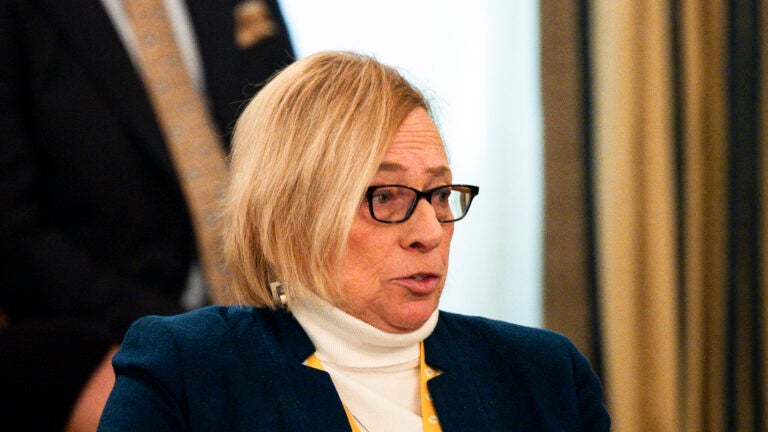Politics
The administration concluded last month that Maine had violated federal law by allowing transgender athletes to play on girls’ or women’s teams.

The Department of Agriculture said on Wednesday that it had frozen federal funding for education programs in Maine, the latest in a barrage of actions targeting the state since its Democratic governor, Janet Mills, sparred with President Donald Trump over the issue of transgender athletes at the White House in February.
The agriculture secretary, Brooke Rollins, notified Mills in a letter that funding would be stopped while the agency reviews grants awarded to Maine by the Biden administration, many of which “appear to be wasteful, redundant, or otherwise against the priorities of the Trump administration,” Rollins wrote in the letter, according to a statement.
-
Trump administration abruptly cuts billions from state health services
It was not immediately clear which educational programs would be affected by the funding freeze. The government’s statement said its latest action would not alter “federal feeding programs or direct assistance to citizens.”
Since Feb. 21, when Trump told Mills that she had “better comply” with his executive order barring transgender women from participating in women’s sports, federal agencies have initiated several investigations of Maine’s public education system. The administration concluded last month that Maine had violated federal law by allowing transgender athletes to play on girls’ or women’s teams.
Maine has declined to accept a proposed settlement agreement that would require it to change a state law that prohibits discrimination based on gender identity. Mills maintains that only the state legislature can change the law.
Investigations of the state continued to multiply last week, as the Department of Education began a new inquiry based on the allegation that Maine schools illegally withheld information from the parents of transgender students.
The escalating conflict has spurred protests for and against Mills in the politically divided state, where temporary cuts to grant-funded programs at the University of Maine threatened to curtail coastal research used to manage the state’s fisheries and protect its waterfront from rising seas.
This article originally appeared in The New York Times.
Extra News Alerts
Get breaking updates as they happen.


